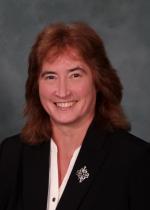
“Christmas has arrived!”
As one of my colleagues entered my room with a large box, I thought “intriguing”, but not quite what I had expected to hear on the first day of teacher pre-service week. However, when we opened the box, I understood.
Last spring, Old Dominion University reached out to schools in its geographic area with a desire to recognize university alumni with shirts and pennants. As the demand was so great, the shirts, pennants, and pens (bonus points for them having red ink!) arrived only recently. Thus, Christmas in August.
Over the summer, Longwood University, through their social media outlet, posted that they had a limited number of LU “Cheer Kits” for teacher alums who registered on their site. According to their post, each cheer kit would include a pennant, Longwood stickers, and other cool classroom swag. (Hey, who doesn’t like swag?)
It’s a great marketing tool—students wanting more information regarding a college of interest only need to look inside classrooms to know where to get their questions answered.
As teachers become unofficial college recruiters, it also changes the relationship among staff members within the building. It offers teachers an enlarged sense of community. Yes, we are all members of the larger school community in which we teach, but our collegiate communities offer a group that shares common characteristics and interests that are equally as distinct in some respect from the larger school community within which we exist. It also allows for some serious collegiate rivalry trash talk, but that is another story for another day!
So, think of NCSS as your larger, professional learning community. Are you getting everything you can out of your NCSS membership? Are you aware that NCSS offers a variety of Special Interest Communities that connect members with interest in specific subject or topic areas to discuss best practices in their areas of interest, share resources, and expand their professional networks? These communities meet during the NCSS Conference and throughout the year via various social media platforms. Open to all NCSS members, a descriptive list of the Special Interest Communities can be found at http://connected.socialstudies.org/ncsscommunities/allncsscommunities
Additionally, Social Studies educators have organized themselves into formal subgroups of NCSS, such as local school district social studies supervisors (NSSSA), state social studies specialists (CS4), international educators (IA), and college and university faculty members (CUFA). Each of these associated groups has its own membership dues, and offers a separate, specific program and business meeting at the annual NCSS Conference. Learn more about the various associated groups by going to https://www.socialstudies.org/groups.
I encourage everyone to seek out one or more of these groups that best fit your interest or subject. You will not be disappointed with the level of expertise of excitement each group has within their specific community or association.